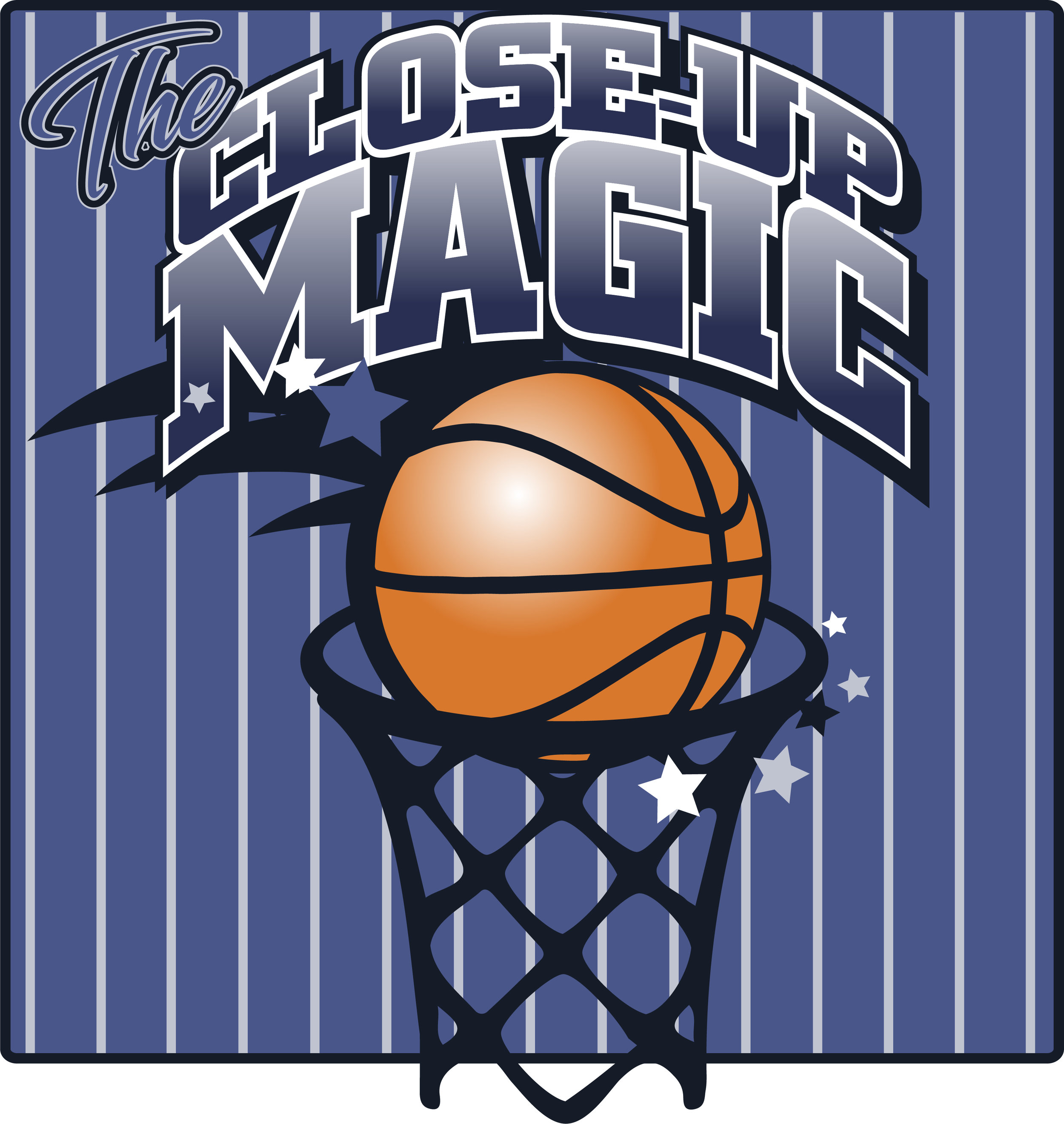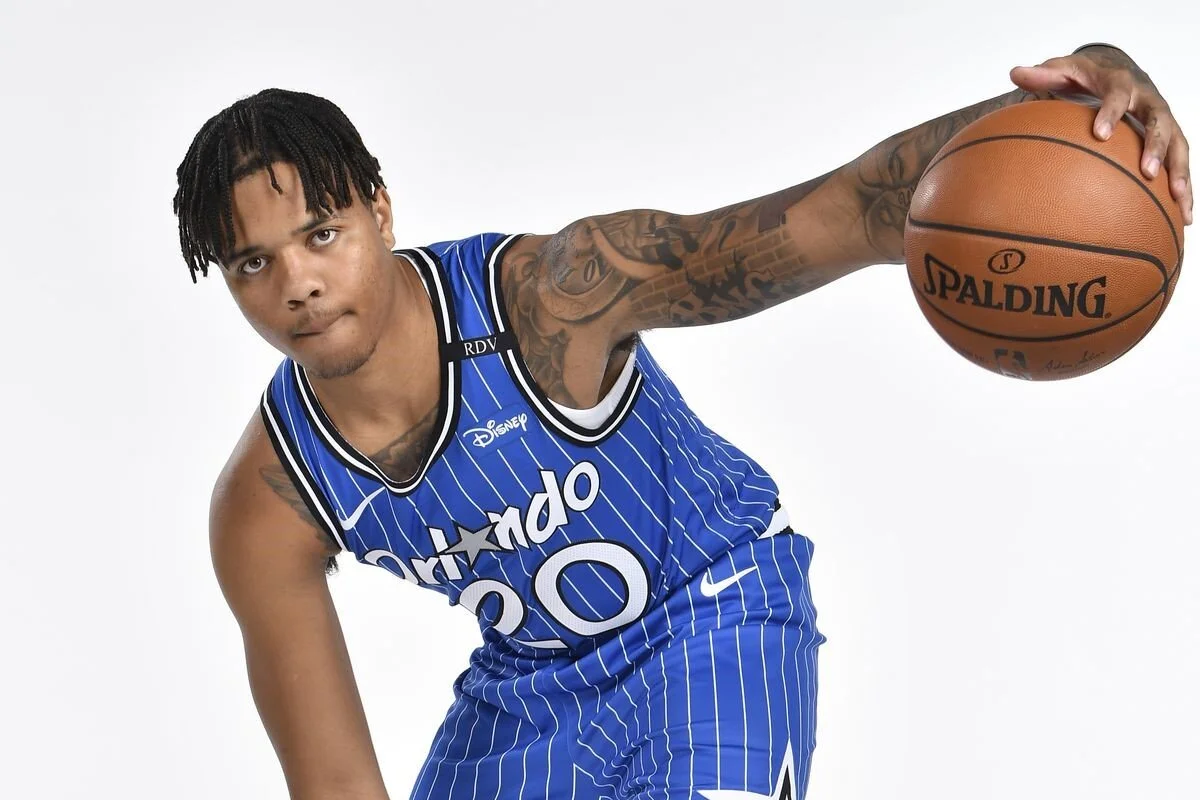Magic 2019 Summer Recap: A Retrospective of the Run It Back
If there is one thing we learned this summer, it’s that the Orlando Magic Front Office wants to remain competitive, and to be frank, who can blame them? Last season was the first time the Magic made the post season since 2012. It’s been a long 7 years to say the least, and I honestly felt like Rose from Titanic recounting how long it had been since I felt playoff basketball in Orlando. The resigning of Vucevic and Ross, along with the signing of free agent Al-Farouq Aminu, are key indicators that John Hammond and Jeff Weltman believe that this team can do more, and it’s a reasonable bet.
The Magic have young players who are slowly harnessing their superpowers and veterans are who are just beginning to round into form. The chemistry at the end of the season was strong, as the Magic went 22-9 over their last 31 games and posted the league’s best defensive rating in that stretch. The players bought into Steve Clifford’s system and Clifford found the right line-ups to really make things click on all cylinders. There is no reason to believe that the Magic are even close to peaking, as they have a highly-balanced roster and with a deep bench. The average age of the team is 25, making them the 14th youngest team in the NBA.
With that said, I can’t knock the Magic’s Front Office decisions this summer. In the end, there is value in making the playoffs, even if your team isn’t a contending team. Playoff experience is invaluable to developing young players (ask the Suns and Kings if you disagree) and further reveals who your veterans are as players. It’s rare, as well as unrealistic, for a team to make a jump to a championship team without having a few playoff runs, even if short lived. Thus, the Magic made good decisions to continue the incremental improvement they made last season. I am indeed ready to RUN IT BACK.
Summer 2019 Prelude
With that said, I’ll get off the soap-box and deliver the facts of what happened and what could have happened this season, from a salary cap perspective.
Going into this summer, the Magic projected to be over the salary cap on July 1, 2019. The team would have had about $89M in guaranteed salary and $67M in cap holds. Thus, the Magic strategically decided to maintain their cap holds and use their exceptions (BAE and MLE) to sign players. By doing so, the Magic retained their Full Bird rights to Terrence Ross and Nikola Vucevic, meaning that both players could be signed above the cap and the Magic could still use their MLE to sign Al-Farouq Aminu.
Hypothetically, Orlando could have created cap room, but they would have had to renounce one of Ross or Vucevic, or perhaps both. For example, the Magic could have renounced all free agent cap holds and waived and stretched Mozgov before July 1, and it could have had $78M in guaranteed salary, no exceptions, but generated about $31M in cap room. This room then could have been used to sign D’Angelo Russell, but it would have been big gamble. Orlando clearly put a premium on continuity and used their exceptions to build the team.
The Magic also had until June 29 to exercise Wes Iwundu’s team option and it’s no surprise that they did so.
July 1, 2019: The New Salary Cap Year
The priorities for Orlando were to keep Ross and Vucevic. Since the team was over the cap, it could only sign them to Full Bird Exceptions, which means any offer could have been up to five years in length, with maximum raises being 8% of the salary in the first season, and up to player’s maximum salary. Ross signed a 4 yr/$54M deal, but was eligible for a 5-year deal at 30% of the salary cap, putting his max well over $150M. Vucevic signed a 4 yr/$100M deal but likewise was eligible for a 5-year deal at 30% of the salary cap, also putting his max well over $150M. As is clear, Orlando got bargains, and it’s refreshing to see players turn down more lucrative contracts to stay with Orlando. It says so much about the culture we are building here.
The signing of Aminu to a 3 yr/$29.162.7M deal was the final piece of the puzzle and really strengthened the bench unit. He fits the length profile the that the Magic executives love and he was a key piece on the Blazers during the Western Conference Finals. The full MLE, which was $9.258M this season, was all it took, which makes for another great value signing.
The same day that these signings became official (July 6) the Magic placed Timofey Mozgov’s contract on waivers. This move was not a big surprise, but I’ll admit I was surprised to see that the Magic stretched his contract. Mozgov was set to make $16.72M this season and that cap hit would have remained, but since the Magic stretched the hit, it will now be $5.573M over the next three seasons. I can only speculate as to why the Magic did this, but it’s pretty apparent that the Magic did this for two reasons: (1) to avoid the luxury tax and (2) to open up a roster spot. The Magic are only $2.3M below the tax this season, so the decision makes sense in context.
During this time, Chuma Okeke’s cap hold counted against the Magic’s salary cap since he was a first-round pick. However, the Magic and he, in what is likely an attempt to facilitate the rehabilitation of his torn ACL, agreed that he would not sign a deal until 2020. This is actually to his financial benefit, as he can sign a more lucrative rookie deal under a higher scale. His $3.623M cap hold will continue to count against the salary cap this season, but not the luxury tax. Cap holds don’t count in the luxury tax calculation.
At this point, the Magic could not sign any additional players outside of what they could offer in the veteran’s minimum, Exhibit 10 contracts, and their own free agents. Given this, there was much speculation about potential trade ideas, specifically with respect to Russell Westbrook. To put it simply, yes, the Magic could have shipped out some young talent this off-season for Westbrook, but the costs would have been too high. Salary wise, the Magic likely would have had to go into the tax, and even if they had made the trade, it would have hampered the team’s flexibility. Also, to be clear, the Magic could not have traded either Ross or Vucevic in a move, as they cannot be traded until December 15 of this season. True, Okeke could have been included in a trade, but since he hadn’t signed a contract, he would have counted as $0 for salary matching purposes.
The final moves of the summer were to pick up the options of Jonathan Isaac, Mo Bamba, and Markelle Fultz. The only surprise here was that the Magic picked up Fultz’s option early. Under the CBA, teams have until October 31 to exercise an option on a rookie scale contract. The fact that the Magic exercised Fultz’s option so early shows how much confidence the Magic Front Office has in him.
Where do we stand now?
The Magic currently have 13 players on guaranteed contracts, with B.J. Johnson, DaQuan Jeffries, Victor Law, Hassani Gravett, and Isaac Humphries all signed on Exhibit 10 contracts. An Exhibit 10 contract is a fully non-guaranteed minimum contract which allows for a bonus up to $50k if, and only if, the player, upon being waived, signs a contract with the team’s g-league affiliate and remains with that team for 60 days.
The Magic cannot convert either of these players to a two-way contract because Amile Jefferson and Josh Magette are on two-way contracts, and there are only two of these slots per team. As a primer, these players do not count against the salary cap and they further do not count against the 15-player roster size limit.
As for the Exhibit 10 contract situation, the Magic were very high on DaQuan Jeffries during the summer league, so I wouldn’t be surprised if he makes a roster spot.
The NBA’s salary cap is currently $109.140M and the Magic’s salary is $132.5M (including all guaranteed salary, cap holds, and dead cap hits). Thus, the Magic are over the cap and will certainly have restrictions on any and all trades that they engage in this season. However, the Magic are below the NBA’s luxury tax this season by about $2.323M and should be able to avoid it.
Where do we go from here?
In terms of next summer, Wes Iwundu will hit restricted freed agency, assuming that the Magic will submit the Qualifying Offer, and D.J. Augustin and Michael Carter-Williams will become unrestricted free agents. The Magic must decide whether to bring them back. It’s quite possible that the Magic and Augustin could agree to an extension by June 30 of next year, but not likely. The Magic also have a team option on Melvin Frazier Jr. Evan Fournier also has a $17.150M player option, which I think he should, and likely will, exercise. In sum, the Magic’s young core is primarily under contract through the end of the 2020-2021 season.
However, the Magic will have to answer some key questions in the summer of 2021, when Markelle Fultz and Jonathan Isaac enter restricted free agency. That summer, the Magic will have approximately $70M in guaranteed salary, with about $93M in cap holds. As it stands now, the team will likely keep the cap holds for Isaac and Fultz, and that alone will place the team over the cap. However, that would take the Magic out of contention for a top-tier free agent (Giannis Antetokounmpo, Bradley Beal, Rudy Gobert, and Victor Oladipo). Fultz and Isaac will be eligible for a rookie extension (and perhaps a Designated Rookie Extension) next summer, and that is the something the Magic should explore if they want to keep this young core together. The Magic could offer such extensions up to the day before the start of the 2020-2012 season.
In sum, Orlando has significant flexibility, maintaining each of its first-round picks from 2020-2026. Orlando further only has $33.5M on the books for the 2022-2023 season.
Orlando is young and I cannot identify a single contract on this team that will hamper its growth. The team is filled with youth, potential, and has great financial flexibility moving forward. All in all, this should be a fun season and the future of this team is bright.





